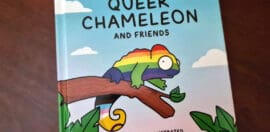Holmes à Court’s candid views laid bare

7 November 2022 at 10:01 am
A new book gives readers an inside perspective on Climate 200’s fundraising and the wave of independents elected to the 47th Parliament.
On election night 2022, the face of Australian politics changed dramatically. The so-called ‘Teal’ wave that swept the nation delivered a new clutch of independent politicians who promise to act on integrity, the climate crisis, and gender equity.
In The Big Teal, a new book from Monash University Publishing, we are given an inside track into the mind of the man who was said to have masterminded the Teals’ ascendancy to the nation’s halls of power: Simon Holmes à Court. The Big Teal combines autobiographical elements with a memoir of Holmes à Court’s work during the 2019 and 2022 elections.
At its heart, it is brutally honest. This is a book that answers the big questions around the Climate 200 and Teal movement, and that doesn’t shy away from the personal.
It begins with an introduction to the phrases used to refer to the community independents and how the term ‘Teal’ took hold. Holmes à Court is candid in his assessment of the term, and of other labels given to the community independents by the media and political opponents. “Some even went as far as tagging them ‘Simon Holmes à Court’s puppets’, an ultimately futile attempt to demean and diminish the capable women who had put themselves forward for election,” he writes, revealing an admiration for the independents that runs as a central thread through the book.
He is also brutally honest about how he came to be involved in the political scene, including about his interactions with then-MP Josh Frydenberg and how they laid the foundations for Climate 200, the crowdfunding body that resourced some of 2022’s independent candidates.
Another key to Holmes à Court’s analysis is his focus on the independence of each community candidate. Throughout the book he reminds readers of Climate 200’s arms-length approach: that it didn’t choose candidates, only who to support of those already running in the crowded election field.
We are given an insight into what made Holmes à Court the man he is today, including his childhood and upbringing, his father, the “spectacularly successful businessman” Michael Robert Hamilton Holmes à Court, and his “impressive” and socially conscious mother.
Holmes à Court details how his interest in climate grew, gradually becoming a passion, and how his involvement in community action like the Hepburn Wind project showed him what was possible “at the juncture of community and climate action, engineering and politics”.
There are also musings on the toxic nature of politics and partisan media, and how the odds are often stacked against independents. Holmes à Court proposes “a root and branch review” of the advantages that incumbents and parties get to level the playing field for future elections.
“The review needs to identify reforms that make elections fairer rather than further entrenching incumbency,” he writes.
Yet this isn’t just a story about politics. It’s the tale of how philanthropy shaped the nation’s politics at a fundamental level, as thousands of Australians dug deep and contributed to causes they believed in.
Through Holmes à Court’s words, we are taken on a journey from Climate 200’s founding, to the consolidation of its strategy as Holmes à Court found “the confidence to engage with politics”.
We learn how veterans of earlier independent campaigns came on board to help guide Climate 200, and how the organisation’s pitch was formalised and deployed. There are lessons here for fundraisers, as Holmes à Court details the rolling online and offline campaigns that helped make Climate 200 so successful — and where the organisation might go from here.
The Big Teal is available online.







